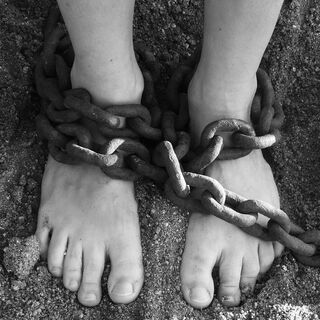Trauma
Why Belief in Conspiracies Is Sometimes Adaptive and Logical
Exposure to historical trauma promotes conspiratorial thinking.
Posted August 13, 2022 Reviewed by Vanessa Lancaster
Key points
- Historical trauma refers to cumulative and collective trauma experienced across generations by individuals who share a common group identity.
- Historical trauma is associated with impoverishment, victimization, and powerlessness, all promoting a belief in conspiracy theories.
- Belief in conspiracies may be justified and adaptive in certain circumstances, such as situations caused by war, occupation, or colonialism.
- Belief in conspiracy theories is maladaptive in times of prosperity and peace; it threatens well-being, social trust, and cohesion.

To be published in the October issue of Current Opinion in Psychology, a paper by M. Bilewicz suggests conspiracy beliefs are “remnants of human adaptation to historical trauma.”
First, a few definitions are provided.
Historical Trauma
The term historical trauma describes cumulative and collective trauma—in most cases resulting from systematic violence and deprivation—experienced across generations by individuals who share a common group identity.
Typical examples include war, genocide, ethnic cleansing, colonialism, enslavement, racial segregation, occupation, economic deprivation, cultural devaluation, and dispossession.
The experience of historical trauma is associated with feeling oppressed, powerless, victimized, exploited, and deprived of vital resources. And becoming suspicious and paranoid.
After all, a likely reason why the aggressors succeeded in their malicious intent is that they were able to fool their victims and keep their true intentions concealed for a long time (e.g., using propaganda techniques).
Of course, the victims eventually realized the extent of the crimes perpetrated by those conspiring against them. So, having been fooled once, many became hypervigilant.
But, as will be described later, this hypervigilant mindset may result in seeing conspiracies where there are none.
Belief in Conspiracies as Adaptation
In summary, beliefs in conspiracy theories may be adaptations to extreme social and political conditions, including occupation, genocide, and severe poverty.
Specifically, these beliefs are psychological adaptations for detecting patterns that might explain the causes of significant sociopolitical events; or for dealing with dangers posed by dishonest, cruel, or greedy enemies and coalitions that use deception and trickery to steal the victims’ resources.
Though useful, this paranoid interpretive framework also increases the likelihood of false positives—of seeing threats and conspiracies where there are none.
False positives are even more likely when historically traumatized people move to better environments, to places that are peaceful and flourishing financially. Or when traumatized societies attempt to reestablish democracy and work toward prosperity.
But how exactly does historical trauma drive belief in conspiracy theories?
Status Devaluation, Sense of Victimhood, and Powerlessness
Historical trauma drives belief in conspiracy theories in three ways—status devaluation, sense of victimhood, and powerlessness.
Status Devaluation
A common cause of historical trauma is status degradation, typically in the form of ongoing economic destruction, which deprives victims of vital resources.
And recent research suggests the experience of prolonged uncertainty and insecurity arising from severe financial difficulties results in lower trust in government and authorities, which fosters conspiracy beliefs.
Bilewicz’s research on antisemitism in Ukraine and Poland found a:
consistent positive correlation between...[beliefs in Jewish conspiracy] and economic deprivation: people who felt that their economic situation was deteriorating and their country’s economy was collapsing were more likely to believe in Jewish control over politics, media, and economy.
The same is usually true in countries with high economic inequality; or when people believe that their country’s economy is performing poorly. In both cases, the sense of status devaluation provides a fertile ground for conspiratorial thinking.
Sense of Victimhood
Many populations develop a victim mindset—also called a siege mentality, victim consciousness, or a perpetual ingroup victimhood orientation.
People with a victim mentality tend to perceive and interpret the behavior of other groups defensively and through the lens of victimization. Therefore, they are constantly on guard, suspicious, and afraid.
Victim mentality promotes conspiracy beliefs, particularly among those who identify strongly with their country. For example, in one study, the French people who felt they “suffered uniquely and more than others from the Zika outbreak” were more likely to endorse Zika-related conspiracy theories (e.g., Zika as an attempt at population control).
Powerlessness and Loss of Control
Loss of agency and control—over one’s fate and the fate of one’s society—is another common experience for people exposed to mass traumatic events.
Members of a traumatized society tend to view the perpetrator outgroup as very powerful and agentic but themselves as impotent and ineffectual. Furthermore, they believe that perpetrators gained greater political control and agency by stealing theirs, which is why they [i.e., the victims] are powerless.
Research suggests feelings of powerlessness, particularly loss of political power, engender conspiracy theories: Traumatized people often “attribute exaggerated influence to enemies as a means of compensating for perceptions of reduced control over their environment.” A study by the author found that among the British and Poles, “lack of control [predicted] beliefs in a Jewish conspiracy.”

Concluding Thoughts on Consequences of Historical Trauma
Historical trauma refers to a combination of psychological trauma and historical oppression. An important social and psychological consequence of historical trauma is conspiratorial thinking.
Bilewicz notes that conspiracy theories “generate mistrust toward social, political, scientific, and even medical institutions.” Worse yet, these beliefs may “motivate criminal behavior and violence...making traumatized groups entangled in protracted conflicts.”
Conspiracy theories also threaten social cohesion because conspiracy believers and skeptics express hostility toward each other (observed during the COVID-19 pandemic). This creates a traumatic rift, likely a “remnant of past colonialism or occupation in which the victimized majority avoided compradors and collaborators within their own group. Traumatic rifts can be revived by any subsequent crises.”
There are also health consequences of historical trauma. Survivors and their descendants are prone to experiencing physical and mental health symptoms such as anxiety, depression, anger, self-criticism, low self-esteem, guilt, grief, mistrust, pain, somatization, and post-traumatic stress disorder (PTSD).
The good news is that when the victims of historical trauma feel in control and feel empowered again, they become less likely to suffer from health consequences or endorse conspiracy theories.
How can we help the victim get there and become empowered? Perhaps the journey toward healing needs to begin by validating the experiences of historical trauma—experiences that have caused the victims to feel powerless and their descendants to live in fear of conspirators.
Maybe we should start there.




